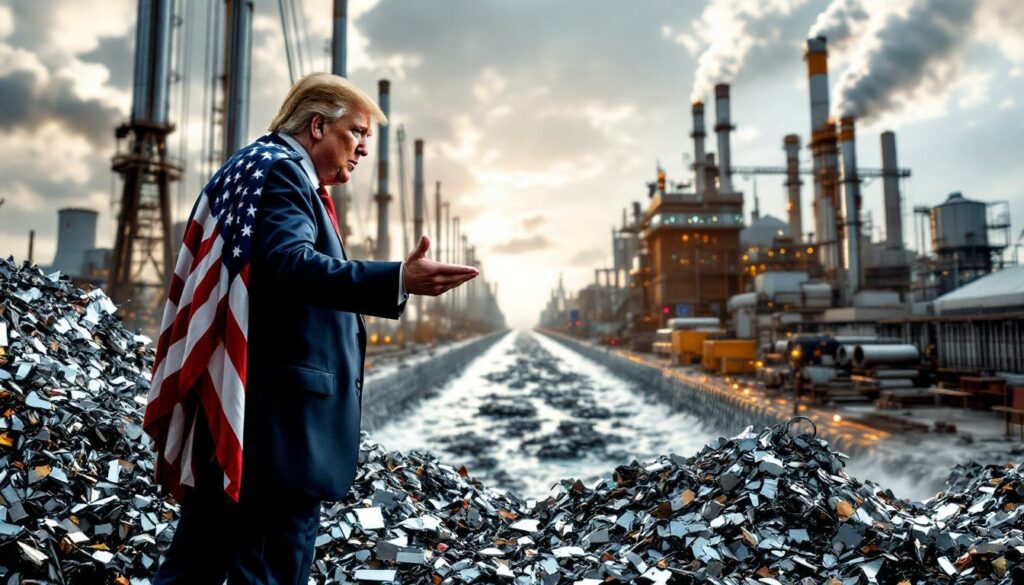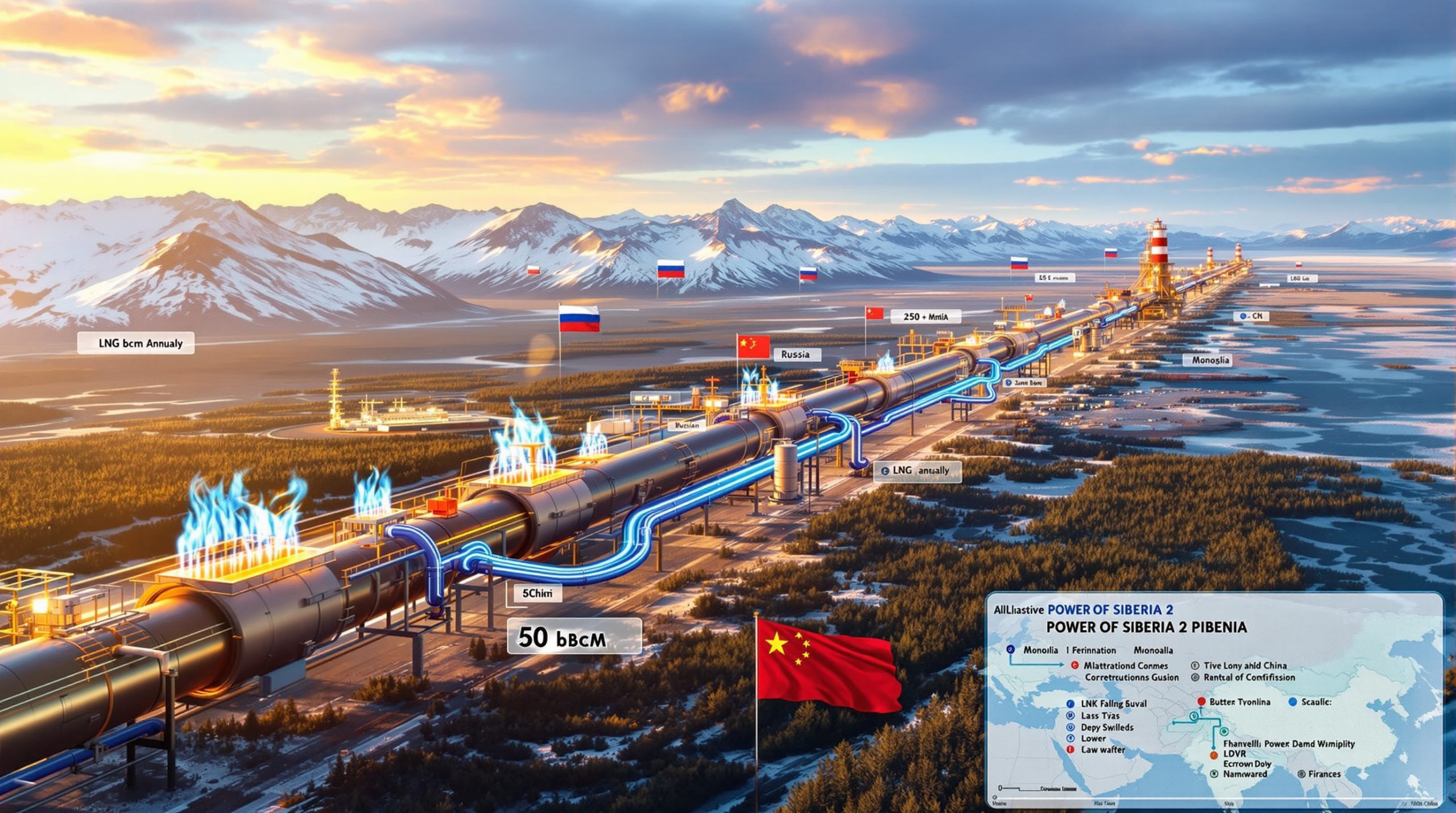How Are Trump's Tariffs Impacting European Metal Producers?
Europe's metal industry faces significant challenges as Trump's tariffs drive a surge in scrap metal exports to the United States. This policy shift is creating ripple effects throughout European supply chains, threatening decarbonization initiatives and prompting calls for protective measures. The situation highlights the complex interplay between international trade policies, environmental goals, and industrial competitiveness.
What Are Trump's New Metal Tariffs?
Understanding the 50% Tariff Policy
The Trump administration has implemented an aggressive 50% levy on imported steel and aluminum products, representing a dramatic escalation from previous trade measures. This substantial tariff, introduced with the stated aim of boosting domestic U.S. production, has created immediate market distortions that extend far beyond American borders.
The policy specifically targets finished and semi-finished metal imports while creating a significant loophole that European producers find particularly troubling. The Trump tariffs implications are already being felt across global markets, with European manufacturers especially vulnerable.
Scrap Metal's Exemption Status
Critically, scrap metal remains entirely exempt from these tariffs, creating what industry analysts describe as a "structural arbitrage opportunity." This selective application has effectively created two separate markets—one for finished metals facing prohibitive tariffs, and another for scrap material that flows freely across borders.
This exemption has transformed what was once a minor trade flow into a major market disruption, with European producers warning of cascading effects throughout their manufacturing base.
How Are European Metal Markets Responding?
The Surge in Scrap Exports to America
The market response has been swift and dramatic. European aluminum scrap exports to the United States have nearly tripled to 6,028 metric tonnes in Q1 2025 compared to the same period last year—a 302% year-over-year increase according to European Aluminium data.
"What was once a trickle has become a flood," notes European Aluminium, the industry association representing major producers including Alcoa, Befesa and AMAG Austria. This export surge represents just a fraction of Europe's total aluminum scrap exports of 345,000 tonnes in the first quarter, but the trajectory has alarmed producers.
Price Distortions and Market Imbalances
The tariff structure has created what industry players describe as an "arbitrage window"—a price gap between the European and American markets of approximately $750 per tonne. This substantial differential makes it highly profitable for traders to purchase scrap in Europe and sell it to American producers.
U.S. metal manufacturers, facing prohibitive costs on finished metal imports, have strong incentives to maximize domestic scrap purchases and source additional material from overseas markets where no tariff barriers exist. This creates a powerful economic vacuum drawing material away from European recycling streams.
Why Is Scrap Metal Critical for European Industry?
The Role of Scrap in Decarbonization Strategies
Scrap metal isn't merely a convenient input for European metal producers—it's fundamental to the EU's carbon reduction goals. Recycling processes save approximately:
- 95% of energy required for primary aluminum production
- 80% of energy needed for primary steel production
These energy savings translate directly to carbon emission reductions, making scrap recycling the cornerstone of European metal industry decarbonization strategies. As the EU pushes toward carbon neutrality by 2050, preserving access to scrap feedstock has become a strategic priority as part of broader mining sustainability trends.
Current Scrap Export Volumes
The scale of Europe's scrap exports highlights both the resource's abundance and its international demand. The EU exported a record 19 million tonnes of ferrous scrap in 2023 alone, with major destinations including:
- Turkey (traditionally the largest importer)
- India
- Egypt
- Pakistan
- United States (rapidly increasing share)
While the U.S. remains just one of several export markets, the tariff-driven price distortion threatens to redirect significantly more material across the Atlantic if left unchecked.
What Solutions Are European Producers Proposing?
Calls for Export Restrictions
European metal producers have launched a coordinated lobbying effort urging the EU to implement immediate protective measures "in the next few weeks" to control scrap outflows. Their proposals include two primary mechanisms:
- Export duties on scrap metal: Financial levies that would reduce the profitability of exports
- Export authorization requirements: Administrative controls similar to those implemented during the COVID pandemic for critical medical supplies
The industry argues that without swift intervention, the arbitrage window will continue drawing critical raw materials away from European production facilities.
Industry Perspectives on Export Controls
The aluminum and steel sectors, while united in calling for action, differ somewhat in their preferred approaches:
The aluminum industry, represented by European Aluminium, is specifically requesting export authorization measures. "Extraordinary times call for extraordinary action," states Paul Voss, head of European Aluminium, emphasizing the urgency of the situation.
Meanwhile, steel producers, through Eurofer (representing companies like Tata Steel, Thyssenkrupp and ArcelorMittal), are advocating primarily for export duties rather than outright bans. "We are asking for an export duty on scrap," explains Axel Eggert, Eurofer's Director General, arguing this would help retain more material within Europe while maintaining some market flexibility.
Who Opposes Export Restrictions?
Recycling Industry Position
The European recycling industry, represented by the European Recycling Industries Confederation (EuRIC), has mounted strong opposition to the proposed export restrictions. Their counterarguments include:
- No actual shortage exists: They contend that European markets already absorb approximately 80% of available steel scrap
- Market balance concerns: Restrictions could depress scrap prices, harming collection economics
- Economic damage: The recycling sector employs thousands across Europe and would face immediate financial pressure
EuRIC maintains that restricting exports would disrupt well-functioning recycling markets without substantively helping metal producers.
Free Trade Considerations
The EU has historically positioned itself as a champion of free trade principles, making export restrictions relatively rare and politically sensitive. Traditionally, EU export controls have been limited to:
- Arms shipments
- Products with military or dual-use applications
- Countries subject to international sanctions
- Emergency pandemic supplies (temporarily)
Implementing broad restrictions on scrap metal would represent a significant departure from the bloc's typical trade philosophy, potentially creating precedents for other sectors. Trade war strategies employed by governments globally are increasingly influencing market dynamics in unexpected ways.
What Are the Environmental Implications?
Carbon Footprint Concerns
Metal producers warn that losing access to scrap will severely undermine European decarbonization efforts across manufacturing supply chains. The consequences would extend far beyond the metal sector itself.
"The CO2 footprint of the aluminium industry will be down the toilet," states Rob van Gils, CEO of Austria's Hammerer Aluminium Industries, if companies are forced to replace scrap with primary metal from high-emission sources. This stark assessment reflects the substantial carbon intensity difference between recycled and primary production.
Green Deal Investment Risks
The situation creates particular challenges for companies that have invested heavily in recycling capacity and low-carbon production methods to comply with EU Green Deal requirements. These investments, often made with specific expectations about raw material availability, face unexpected headwinds if the arbitrage window persists.
Industry representatives argue that allowing critical scrap resources to be diverted overseas undermines the foundation of Europe's industrial decarbonization strategy, potentially jeopardizing the bloc's 2050 carbon neutrality timeline and creating new energy transition challenges.
What Is the European Commission's Response?
Assessment Timeline
The European Commission has acknowledged industry concerns while maintaining a deliberate approach to potential interventions. Officials have indicated they are:
- Regularly engaging with both metal producers and recyclers to understand market dynamics
- Assessing current supply-demand balances across the metal value chain
- Planning to determine whether trade measures are necessary for steel, aluminum and copper markets in the third quarter of 2025
This timeline frustrates producers who argue immediate action is required before established trade patterns become entrenched.
Balancing Competing Interests
The Commission faces the complex task of balancing multiple competing priorities:
- Metal producers' concerns about raw material access
- Recyclers' desire for open export markets
- The EU's broader commitment to free trade principles
- Environmental goals under the European Green Deal
- International trade relationships during a period of rising protectionism
Any policy response must navigate these often contradictory interests while remaining compliant with WTO obligations and broader EU trade frameworks.
Can the EU Negotiate with the Trump Administration?
Trade Deal Prospects
European officials have indicated that the EU may not be able to strike a comprehensive trade deal by Trump's July 9 deadline, creating urgency for potential unilateral protective measures. The complexities of international trade negotiations, particularly with an administration that has embraced tariffs impact markets as a primary policy tool, make rapid resolution unlikely.
This timeline mismatch creates particular pressure on European policymakers to consider interim measures while diplomatic channels remain open.
Industry Impatience
Metal producers have expressed frustration with the pace of diplomatic efforts, arguing they cannot afford to wait for EU-US negotiations to conclude before taking action. "Metal producers cannot wait for the bloc to strike a trade deal with Trump," emphasizes European Aluminium's Paul Voss, reflecting industry concerns that market distortions are causing immediate damage.
The tension between diplomatic timelines and market realities highlights the challenges policymakers face in responding to rapidly evolving trade disputes. According to The Guardian's analysis, European steel manufacturers are already struggling with the combined pressures of tariffs and high energy costs.
What Are the Long-Term Industry Concerns?
Supply Chain Resilience
European producers worry about long-term supply chain disruptions if scrap continues to flow primarily to the United States, potentially creating structural shortages in the European market. Beyond immediate price effects, they fear permanent changes to collection and distribution networks that would be difficult to reverse even if tariff policies eventually change.
The situation underscores broader concerns about raw material security in an era of increasing resource nationalism and trade barriers. CNBC reports that while some countries like the UK have been partially spared, most European nations face the full impact of the new tariff regime.
Competitive Disadvantage Fears
Eurofer's director general Axel Eggert has expressed concerns about a particularly troubling scenario: overseas producers could purchase EU scrap to produce low-carbon recycled steel and then sell it back to the bloc, creating an unfair competitive disadvantage.
"We need to retain more scrap within the EU for our decarbonisation," Eggert argues, highlighting how the current situation could paradoxically lead to European manufacturers importing products made from their own exported raw materials, but at higher prices and with additional carbon emissions from transportation.
FAQs About Trump's Tariffs and European Metal Producers
How much have EU aluminum scrap exports to the US increased?
EU aluminum scrap exports to the US nearly tripled to 6,028 metric tonnes in Q1 2025 compared to the same period in 2024, representing a 302% year-over-year increase.
What energy savings does metal recycling provide?
Recycling saves up to 95% of the energy required for aluminum production and 80% for steel production, making it crucial for carbon reduction goals.
What measures are European metal producers requesting?
They are requesting either export duties on scrap metal or export authorization requirements to regulate outflows, with aluminum producers favoring authorization measures while steel producers lean toward export duties.
Who opposes these export restrictions?
The European recycling industry, represented by EuRIC, opposes these restrictions, arguing there is no actual scrap shortage in Europe and that EU demand already absorbs approximately 80% of available steel scrap.
When will the European Commission decide on potential trade measures?
The Commission has indicated it will determine whether trade measures are necessary during the third quarter of 2025, following its ongoing assessment of market conditions across steel, aluminum, and copper sectors.
Disclaimer: This article contains analysis of current market conditions and potential policy responses. The situation remains fluid, and actual outcomes may differ from those discussed. Readers should consider multiple sources when making business or investment decisions related to the metal industry.
Want to Spot the Next Big Mineral Discovery Before the Market?
Discover why major ASX mineral findings can lead to significant returns by exploring Discovery Alert's dedicated discoveries page, where our proprietary Discovery IQ model delivers real-time alerts on significant mineral discoveries, turning complex data into actionable investment insights.


